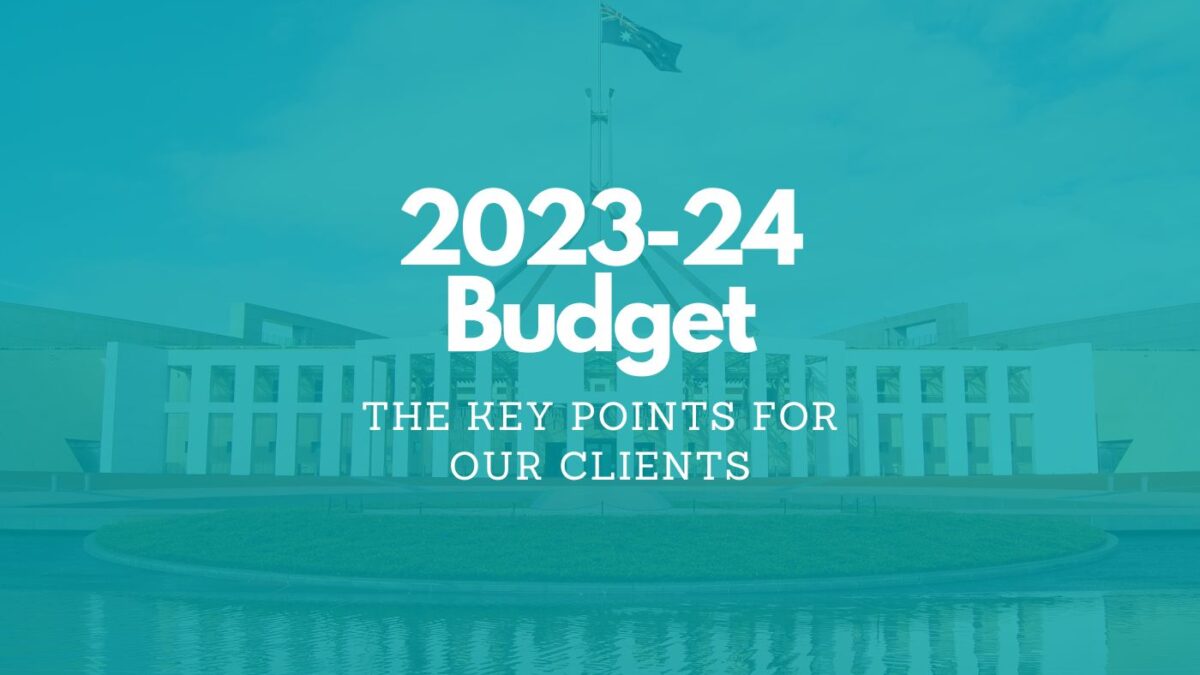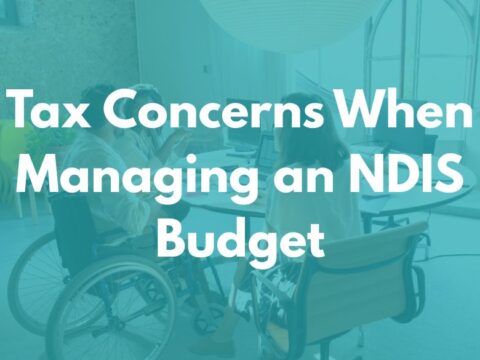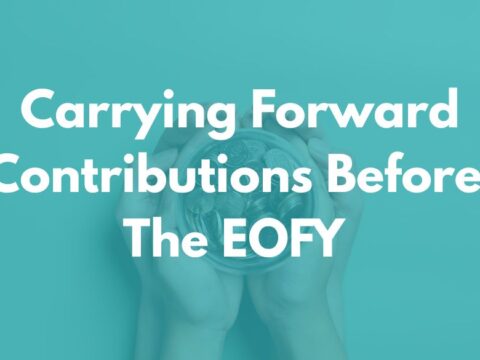Key budget measures affecting our clients
By Mark Copsey, Partner
In the wake of the 2023-24 Federal Budget announcement last night, we wanted to provide the main updates affecting Allworths clients here. Please feel free to contact me if you require more information or have any questions along the way.
Superannuation changes
As we’ve reported on previously in our newsletters, the Government will reduce the tax concessions available to individuals with a total superannuation balance exceeding $3 million from 1 July 2025.
Individuals with a total superannuation balance of less than $3 million will not be affected.
This reform is intended to ensure generous superannuation concessions are better targeted and sustainable. It will bring the headline tax rate to 30 per cent, up from 15 per cent, for earnings corresponding to the proportion of an individual’s total superannuation balance that is greater than $3 million. This rate remains lower than the top marginal tax rate of 45 per cent. Earnings relating to assets below the $3 million threshold will continue to be taxed at 15 per cent or zero per cent if held in a retirement pension account.
Interests in defined benefit schemes will be appropriately valued and will have earnings taxed under this measure in a similar way to other interests.
The measure will not place a limit on the amount of money an individual can hold in superannuation. The current contributions rules continue to apply.
Medicare thresholds increased
The Medicare levy low-income thresholds for singles, families and seniors and pensioners will increase from 1 July 2022:
- The threshold for singles will be increased from $23,365 to $24,276
- The family threshold will be increased from $39,402 to $40,939
- For single seniors and pensioners, the threshold will be increased from $36,925 to $38,365
- The family threshold for seniors and pensioners will be increased from $51,401 to $53,406
- For each dependent child or student, the family income thresholds will increase by a further $3,760 instead of the previous amount of $3,619
Paying employee super at same time as wages paid
From 1 July 2026, employers will be required to pay their employees’ SG entitlements on the same day that they pay salary and wages.
Currently, employers are only required to pay their employees’ SG on a quarterly basis. By increasing the payment frequency of superannuation to align with the payment of salary and wages, this measure will both ensure employees have greater visibility over whether their entitlements have been paid and better enable the ATO to recover unpaid superannuation.
Increased frequency of payment will also support better retirement outcomes.
Instant asset write off reduced to $20,000 and disappears for medium sized enterprises
The instant asset write-off threshold will be $20,000, from 1 July 2023 until 30 June 2024.
Small businesses, with aggregated annual turnover of less than $10 million, will be able to immediately deduct the full cost of eligible assets costing less than $20,000 that are first used or installed ready for use between 1 July 2023 and 30 June 2024. The $20,000 threshold will apply on a per asset basis, so small businesses can instantly write off multiple assets.
Assets valued at $20,000 or more (which cannot be immediately deducted) can continue to be placed into the small business simplified depreciation pool and depreciated at 15 per cent in the first income year and 30 per cent each income year thereafter.
Small Business Support – Small Business Energy Incentive
Small and medium businesses, with aggregated annual turnover of less than $50 million, will be able to deduct an additional 20 per cent of the cost of eligible depreciating assets that support electrification and more efficient use of energy. Up to $100,000 of total expenditure will be eligible for the Small Business Energy Incentive, with the maximum bonus deduction being $20,000.
A range of depreciating assets, as well as upgrades to existing assets, will be eligible for the Small Business Energy Incentive. These will include assets that upgrade to more efficient electrical goods such as energy-efficient fridges, assets that support electrification such as heat pumps and electric heating or cooling systems, and demand management assets such as batteries or thermal energy storage. Full details of eligibility criteria will be finalised in consultation with stakeholders.
Eligible assets will need to be first used or installed ready for use between 1 July 2023 and 30 June 2024. Eligible upgrades will also need to be made in this period.
Certain exclusions will apply such as electric vehicles, renewable electricity generation assets, capital works, and assets that are not connected to the electricity grid and use fossil fuels.
As mentioned, feel free to contact us with any questions or concerns as you work through what this Budget means for you.
IMPORTANT NOTICE
This blog post contains general information only and has been provided by Allworths without reference to your objectives, financial situation or needs. Allworths cannot guarantee the accuracy, completeness or timeliness of the information contained here. By making this information available to you, we are not providing professional advice or recommendations. Before acting on any of the information contained here, you should seek professional advice.




